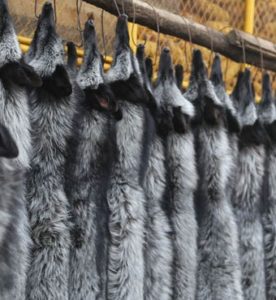Podcast: Play in new window | Download
The Supreme Court Nomination of Judge Ketanji Brown Jackson
During vicious, racist questioning by Republican members of the Senate Judiciary Committee, Judge Ketanji Brown Jackson remained dignified, poised and unruffled. Jackson’s record is impeccable. No nominee for the Supreme Court has had stronger credentials.
GOP senators on the committee leveled racist and sexist attacks against Jackson, playing to their radical right-wing base. Many of the questions mirrored QAnon talking points. GOP committee members apparently sought to peel off votes for Jackson’s confirmation while appealing to right-wing voters in their forthcoming congressional and presidential campaigns.
Ted Cruz attacked Jackson with charges about critical race theory. Josh Hawley tried to paint Jackson as “soft on crime.” And Lindsey Graham accused Jackson of aiding terrorism by representing Guantánamo detainees.
Nevertheless, it appears that Jackson will be confirmed to the Supreme Court, the only Black woman ever to serve as a justice on the high court. Although Jackson’s confirmation will not change the skewed ideological balance of the court, she and Sonia Sotomayor will comprise a strong progressive wing of the court.
Guest – Attorney Marjorie Cohn, who is a co-host on Law and Disorder. Marjorie is professor emerita at Thomas Jefferson School of Law, former president of the National Lawyers Guild, and a former criminal defense attorney. Her books include The United States and Torture: Interrogation, Incarceration, Abuse, and she writes a regular column for Truthout.
—-
Basic Legal Rights For Animals: Activists and Advocates
Discussions over whether animals are sentient beings, capable of feeling pain, pleasure or suffering, date back as far as ancient thinkers such as Plutarch, Hippocrates and Pythagoras. They all advocated for the fair treatment of animals. The term animal rights stands for the proposition that non-human animals have the right to be treated, not as property, but rather as the individuals they are, with their own desires and needs.
Animal law is now widely taught in law schools across North America. There are 167 law schools in the U.S. and Canada, and 11 in Australia and New Zealand, teaching courses in animal law. Several legal scholars support extending basic legal rights and to personhood to non-human animals.
Critics of animal rights argue that nonhuman animals are unable to enter into a social contract, and thus cannot have rights. Another argument is that animals may be used as resources as long as they don’t undergo unnecessary suffering.
Certain forms of animal rights activism, such as the destruction of fur farms and animal labs by the ALF or Animal Liberation Front, have also attracted criticism, and prompted Congressional reaction by enacting of harsh laws allowing these activities to be prosecuted as terrorism. These laws include the Animal Enterprise Terrorism Act.
Guest – Attorney Tamara Bedic, chairperson of the National Lawyers Guild Animal Rights Project. She is a graduate of the University of Virginia School of Law and a masters degree from Columbia University-NY University. Tamara practices employment law with a focus on women and harassment in the workplace.
————————–




